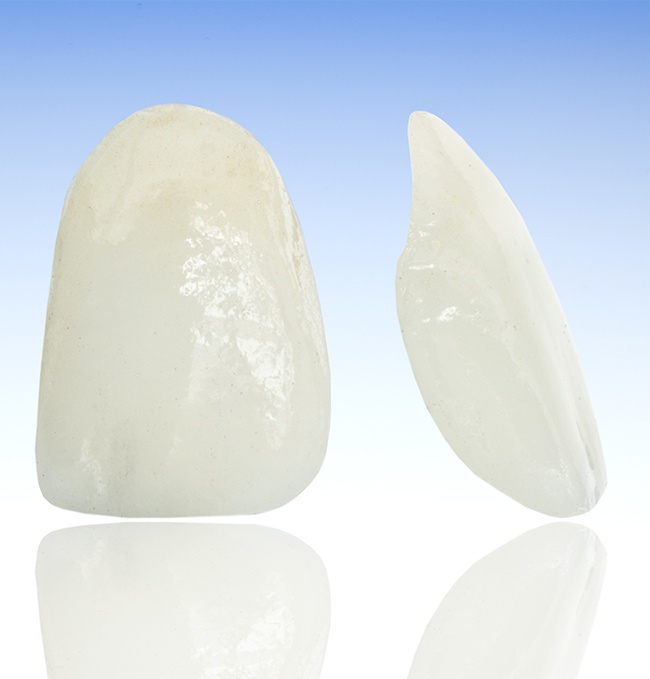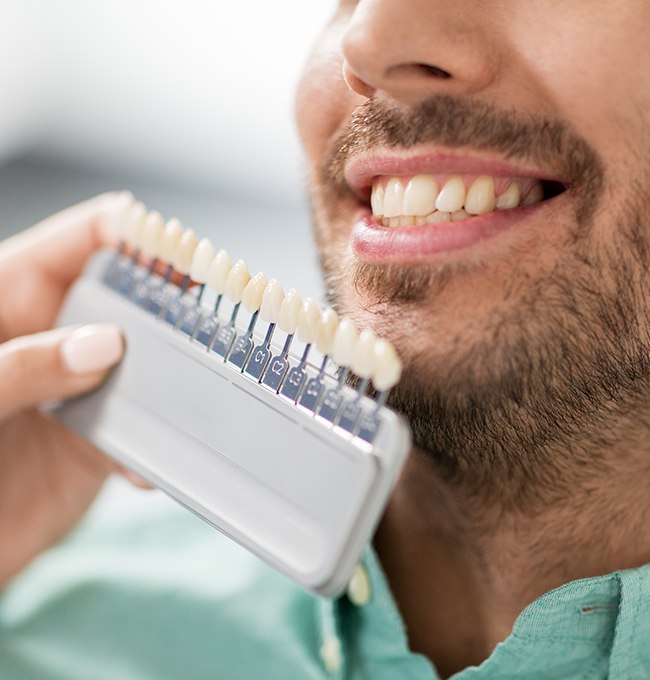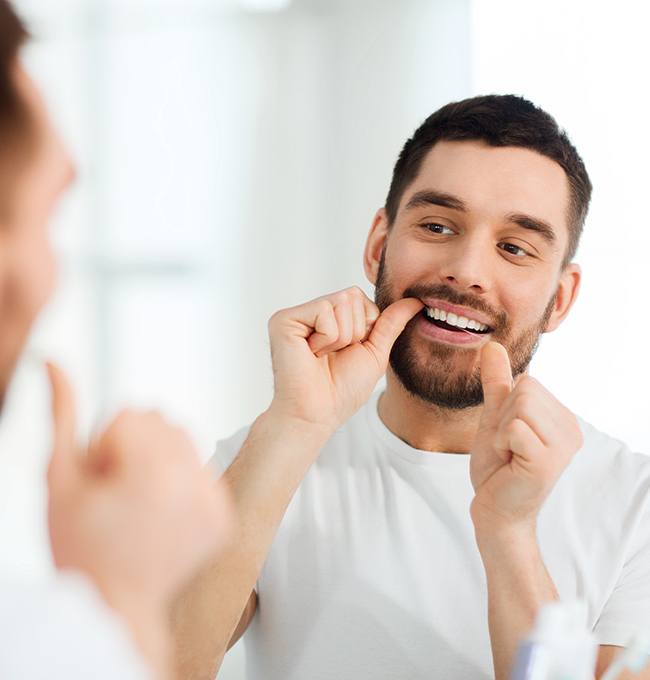Porcelain Veneers – Chaska, MN
The One-Stop-Shop Cosmetic Treatment
Did you know your smile is what most people remember after meeting you? A UK study revealed that the smile had a bigger impact on making a positive first impression than any other asset in both personal and professional meetings. You may think that reclaiming a flawless, natural appearance is only for the rich and famous, but when working with a skilled cosmetic dentist, a flawless smile may be just one simple treatment away. At White Oak Dental, our team offers porcelain veneers for patients who want to conceal or correct any number of chips, cracks, stains, and gaps in the smile. Contact our Chaska dental office to find out more or schedule a cosmetic dentistry consultation today.
Why Choose White Oak Dental for Veneers?
- Versatility: Restores a Variety of Smile Imperfections
- Experienced Cosmetic Dentist
- Stain-Resistant Porcelain Veneers
What Are Porcelain Veneers?

Veneers are thin sheaths of dental grade porcelain. To correct any minor to moderate cosmetic flaws, these small, about the size of a fingernail, porcelain veneers can be attached to the front facing surfaces of teeth.
Who Should Consider Porcelain Veneers?

Like any other dental treatments, our cosmetic dentistry plans are conservative. That means we focus on preserving the greatest possible amount of healthy dental structure. If patients are unable to achieve their desired cosmetic appearance with more conservative solutions, like teeth whitening or dental bonding, porcelain veneers may be a great option.
How Are Porcelain Veneers Placed?

Placing porcelain veneers will require patients to visit us for at least two treatment appointments. During the initial visit, we’ll start by using local anesthesia to numb the area to be treated. Then, a very small amount of surface tooth enamel is removed to allow the veneer to lay flat within the natural smile line. Then, we capture impressions of the prepared teeth that will be used by our trusted dental lab to craft the custom porcelain veneers. To protect your teeth until we receive the veneers from our lab, we place temporaries. This will also give you the opportunity to get used to the look and feel of your new smile and make any necessary changes.
Once we receive the custom porcelain veneers from the lab, you’ll return for the second treatment visit. This appointment is much shorter than the initial visit. We simply remove the temporaries, and exchange them for the custom porcelain veneers from the lab. Once in place, if you’re happy with the results, we’ll cement them on your teeth and polish and smooth them out. In rare cases, we do need to return the veneers to the lab to make some minor adjustments to ensure you’re happy with your transformed smile.
How Do I Care for My Porcelain Veneers?

Porcelain veneers are crafted from high quality, stain resistant materials. With proper daily care including brushing and flossing and regular dental office visits, these dental veneers can last for a decade or longer without a need for repair. You may need to change your toothpaste to one that is less abrasive to avoid wearing down the porcelain, and our Chaska team is happy to help you find the best one. Because the porcelain veneers are stain-resistant, you can even drink coffee and enjoy a glass of red wine without fear of damaging your newly perfected smile.
Veneers FAQs
Are Veneers Permanent?
Many patients being fitted with these restorations near Chaska want to know whether or not they’re a lasting solution. Although incredibly durable, they may need to be replaced eventually, so technically, they’re not considered permanent. However, they are not intended to be removed once in place, so they’re considered irreversible.
Furthermore, some of your enamel must be removed for them to line up flush against your gums. Because this protective outer layer doesn’t regenerate, you’ll need veneers (or another appropriate restoration) bonded to your teeth to safeguard your smile moving forward.
What Happens to the Teeth Under Veneers?
It’d be easy to assume that your teeth are fully shielded underneath these ceramic shells, but the truth is that they only cover the surface of your teeth. That means bacteria in your mouth can still erode your enamel and contribute to cavities or gum disease.
As a result, it’s essential to brush and floss twice daily to regularly remove germs and plaque that can cause dental problems, and visit our team every six months for a routine checkup. This allows us to monitor your dental condition to identify and address potential issues before they progress.
Is There Anything I Can’t Eat with Veneers?
When you’re investing in making upgrades to your smile, it helps to know what life looks like after the fact. Many patients wonder whether veneers come with dietary restrictions they need to be aware of.
Although these shells are incredibly resilient, they’re not invincible. Avoid anything too sticky that could yank them off your teeth and anything overly dark that might stain them. You might also want to avoid overly sugary foods that attract unhealthy microbes to your mouth, and hard ones that could chip or crack your prosthetics.
Do Veneers Give You a Lisp?
Some people develop a mild lisp or other variations to their speech patterns when they first get veneers. This is probably partly because your tongue and the other supporting muscles and ligaments in your mouth are unfamiliar with their presence when they’re new. You might need time and practice to refamiliarize yourself with clearly enunciating certain sounds, like “s” and “v”.
If you’re frustrated by a lisp that won’t dissipate after a few weeks, we might be able to assist by reducing the thickness of your veneers.
How Long Do Veneers Last?
These restorations are known for their durability, but it’s natural to wonder exactly how long they usually last. According to a study completed in 2012, 95% of the veneers placed lasted 5 years, 94% lasted 10 years, and 83% lasted 20 years. That makes them a popular and effective long-term solution.
To expand their longevity, you should take precautions to keep your mouth clean and avoid foods that could harm them.
